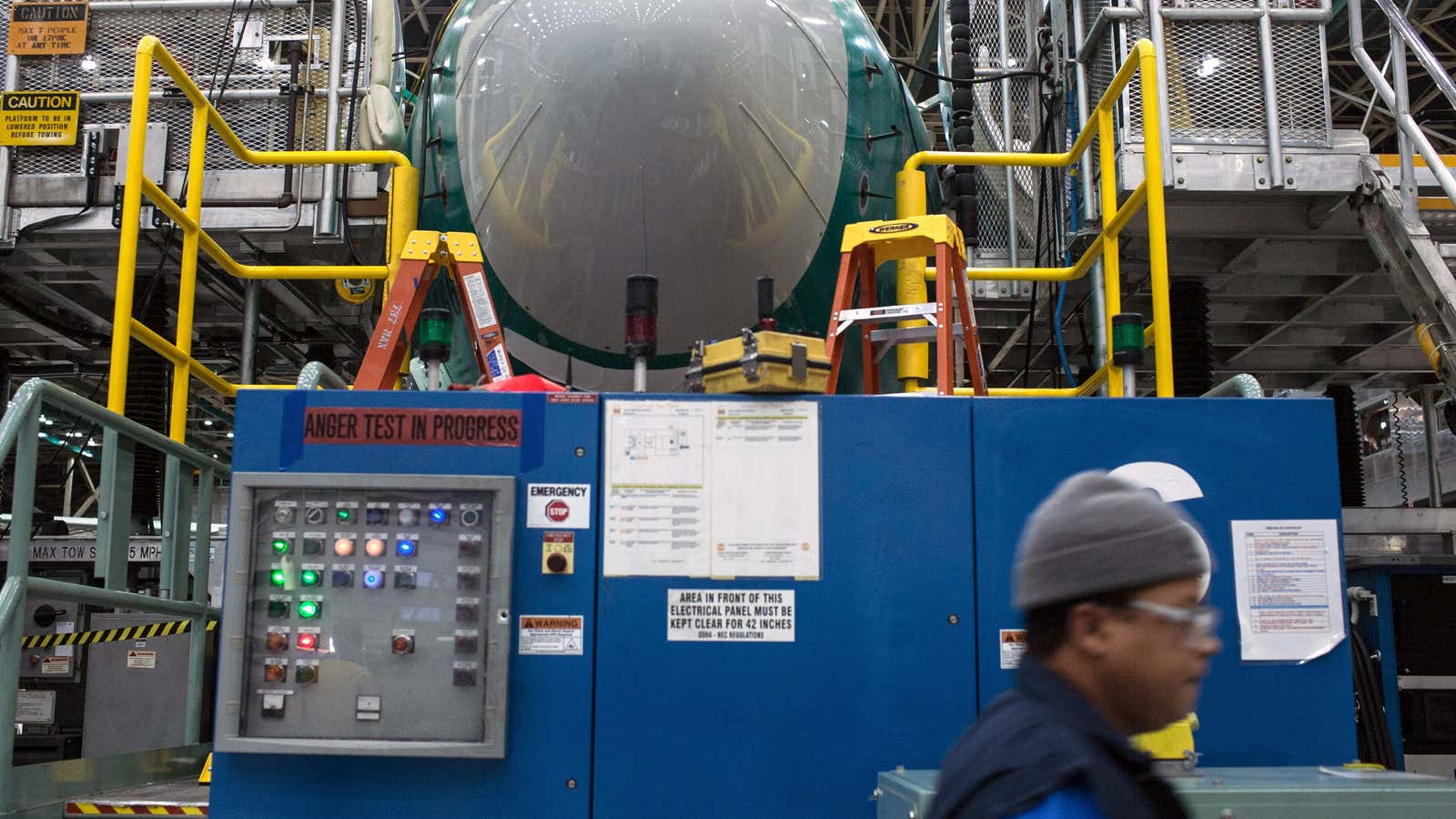A four-year college degree, long seen as the ticket to the upper ranks of American society, is increasingly becoming a necessary credential for even a middle-class existence. Dozens of occupations—from bookkeepers to administrative assistants—can now require college degrees when none was required before.
While the nature of the work hasn’t changed, the ratcheting up of necessary qualifications erects a higher barrier of entry, threatening the social mobility of millions and adding costs to both workers and employers, according to a new study from Harvard Business School, Accenture, and Year Up, a nonprofit that places young people into jobs.
According to an analysis of millions of help-wanted postings, there are as many as 6.2 million jobs, now performed by workers without degrees, in fields that have started making higher-education a common requirement. For example, among the 603,0000 people employed as production supervisors, only 16% have four-year college degrees, yet 67% of job listings for the role require them.
That means many workers now employed in the field may not be able to find another, similar job if they leave their current position, and new high-school or community-college graduates who can’t afford four-year college may be shut out of the occupation altogether. In most cases, the jobs themselves haven’t gotten more complicated or demanding, but the requirements needed to secure them have gotten more stringent.
This form of degree inflation is one reason US employers can’t fill 6.1 million openings, despite the fact that twice that many Americans of working age are un- or underemployed.
Meanwhile, as four-year degrees become more expensive, they’re becoming less attainable for low-income Americans. Enrollment rates for high-school graduates from the poorest fifth of US families fell 10% between 2008 and 2013, according to the American Council on Education. Not coincidentally, net tuition (which factors in financial aid) rose 21% at four-year universities over that same span.
The trends punish the working poor, but they also hurt companies. Requiring four-year degrees shrinks the pool of available talent, making jobs harder to fill, which in turn drives up salaries. The median weekly income for employees with bachelor’s degrees is $1,156, compared to $692 for those without a degree.
The study’s authors point to several factors for the growing emphasis on degrees, but it basically comes down to laziness. College degrees are seen as a proxy for soft skills—such as communicating with coworkers and customers—and requiring them is a simple way to cull the field of applicants. It’s easier to ask an algorithm to reject anyone without a college degree, than to conduct hundreds of interviews to discover whom has the necessary soft skills.
If there’s a bright side, it’s that a growing number of companies are recognizing the limitations of the degree as a credential, and so are providing their own training instead. Walmart, for example, is opening 200 academies to train its managers, who aren’t required to have college degrees. And IBM—which annually hires thousands of workers without degrees, for jobs like network administrators—is working with public education systems to create six-year high schools that provide vocational training.
For employers struggling to fill jobs, hiring for attitude and enthusiasm and providing training seems to make at least as much sense as erecting barriers to would-be applicants and trusting in the power of a diploma.
